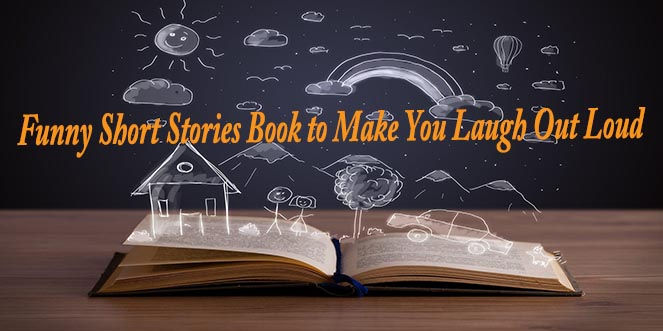What Makes Short Stories Unique? Exploring Their Exploring Their Distinctive Features
- Roman Austin
- Jun 2, 2025
- 4 min read

Short stories stand out because they deliver complete, emotionally rich narratives in a small space—often under 7,500 words. They focus on one idea, moment, or character, using precise language and structure to create lasting impact.
In this article, you'll learn what defines a short story, why it works so well, how it differs from longer fiction, and why this form remains a favorite among writers and readers alike.
What Is a Short Story?
A short story is a brief work of fiction—typically between 1,000 and 7,500 words—with a clear beginning, middle, and end. Some stories are even shorter, like flash fiction (under 1,000 words), while novellas (up to 40,000 words) sit just above the short story in length.
What defines a short story isn't just word count—it’s the ability to deliver a complete narrative arc in a condensed space.
Key Characteristics of Short Stories
1. Brevity
Short stories demand precision. Every sentence must earn its place. There’s no room for filler, which forces writers to get straight to the point—developing character, setting, and plot with minimal excess.
2. Single Focus
Rather than sprawling narratives, short stories tend to zero in on one character, event, or idea. This sharp focus often centers on a moment of change, realization, or emotional intensity.
3. Emotional Impact
A great short story often hits hard and fast. Through tight language and vivid imagery, it captures emotional truths that linger long after reading.
4. Unity of Effect
Coined by Edgar Allan Poe, this idea means that every element of the story—tone, setting, plot, and character—works together to create one unified impression or feeling in the reader.
5. Open or Ambiguous Endings
Short stories often leave questions unanswered or conclusions open-ended. This doesn’t mean the story is incomplete—it invites the reader to engage, interpret, and imagine beyond the page. Many are known for short stories with twist endings that leave a lasting impact and provoke deeper reflection.
Short stories often leave some questions unanswered or end in ways that are open to interpretation. This isn’t a flaw—it invites readers to think, reflect, and find their own meaning. Some stories also feature twist endings that add surprise and deepen the impact.
6. Economy of Language
Each word matters. Writers use precise, layered language, often relying on symbolism, subtext, or metaphor to communicate more than what’s explicitly stated.
Common Themes in Short Stories
Short stories often explore universal experiences in everyday settings. Common themes include:
Relationships – Between partners, friends, parents, and children.
Turning Points – Moments of decision, revelation, or change.
Moral Choices – Ethical dilemmas, justice, and gray areas.
Identity and Meaning – Questions of self, belonging, and purpose.
These themes resonate because they capture moments we all experience—condensed into a vivid literary snapshot.
Darker themes like fear and suspense also appear frequently, with horror ghost stories delivering chilling thrills in a concise, impactful form.
Why Short Stories Matter Today
In today’s fast-paced world, short stories deliver rich experiences without a big time commitment. Digital platforms make it easy to find all kinds of tales, including fantasy short stories that whisk readers away to imaginative worlds in just a few pages. Whether through magazines, contests, podcasts, or online collections, short stories offer something for every reader and writer.
Literary magazines (e.g., The New Yorker, Ploughshares)
Writing contests that reward originality and structure
Podcasts and audio fiction, perfect for single-sitting storytelling
Film adaptations, where compact plots lend themselves to screenwriting
They’re also a testing ground for writers—a place to refine voice, experiment with style, and explore new genres.
How Short Stories Differ From Novels
Aspect | Short Stories | Novels |
Length | 1,000–7,500 words | 50,000+ words |
Scope | Hours or a single event | Months, years, lifetimes |
Focus | One theme, moment, or conflict | Multiple layers and subplots |
Character Depth | Implied through action/dialogue | Explored through inner thoughts and backstory |
Reader Impact | Concise, often intense | Immersive and gradual |
Short stories are more about resonance than resolution—they stay with readers in subtle, often surprising ways.
Notable Short Story Writers
Edgar Allan Poe – The Tell-Tale Heart, master of mood and unity of effect.
Alice Munro – Nobel laureate known for stories about women and rural life.
Raymond Carver – Pioneer of minimalist fiction (Cathedral).
Jhumpa Lahiri – Interpreter of Maladies, blending identity and displacement.
These authors show how short fiction can reflect different cultures, styles, and emotional landscapes.
Tips for Writing Great Short Stories
Start small – One idea, one moment, one shift.
Show, don’t tell – Let action and dialogue reveal your characters.
Use strong imagery – Let your words do double duty: paint a picture and evoke emotion.
Leave space – Don’t over-explain. Let the reader bring their own interpretation.
Edit ruthlessly – Every word must pull its weight.
Final Thoughts: The Art of the Short Story
Short stories are more than just “short novels.” They’re a distinct art form—tight, elegant, and emotionally charged. With focused storytelling, rich subtext, and bold economy, they remind us that sometimes the smallest tales leave the deepest impressions.
Whether you're a reader looking for a quick literary hit or a writer honing your craft, short stories are where storytelling thrives in its purest form.If you're looking to explore more, browse our curated collection of short stories—crafted to stir thought, spark emotion, and stay with you long after the last word.
FAQs
How long is a short story?
Typically between 1,000 and 7,500 words. Flash fiction is shorter; novellas are longer.
Can a short story have multiple characters or themes?
Yes—but keep it tight. Too many characters or threads can blur the focus.
What makes a short story powerful?
A sharp concept, emotional resonance, rich language, and a memorable or thought-provoking ending.




Comments